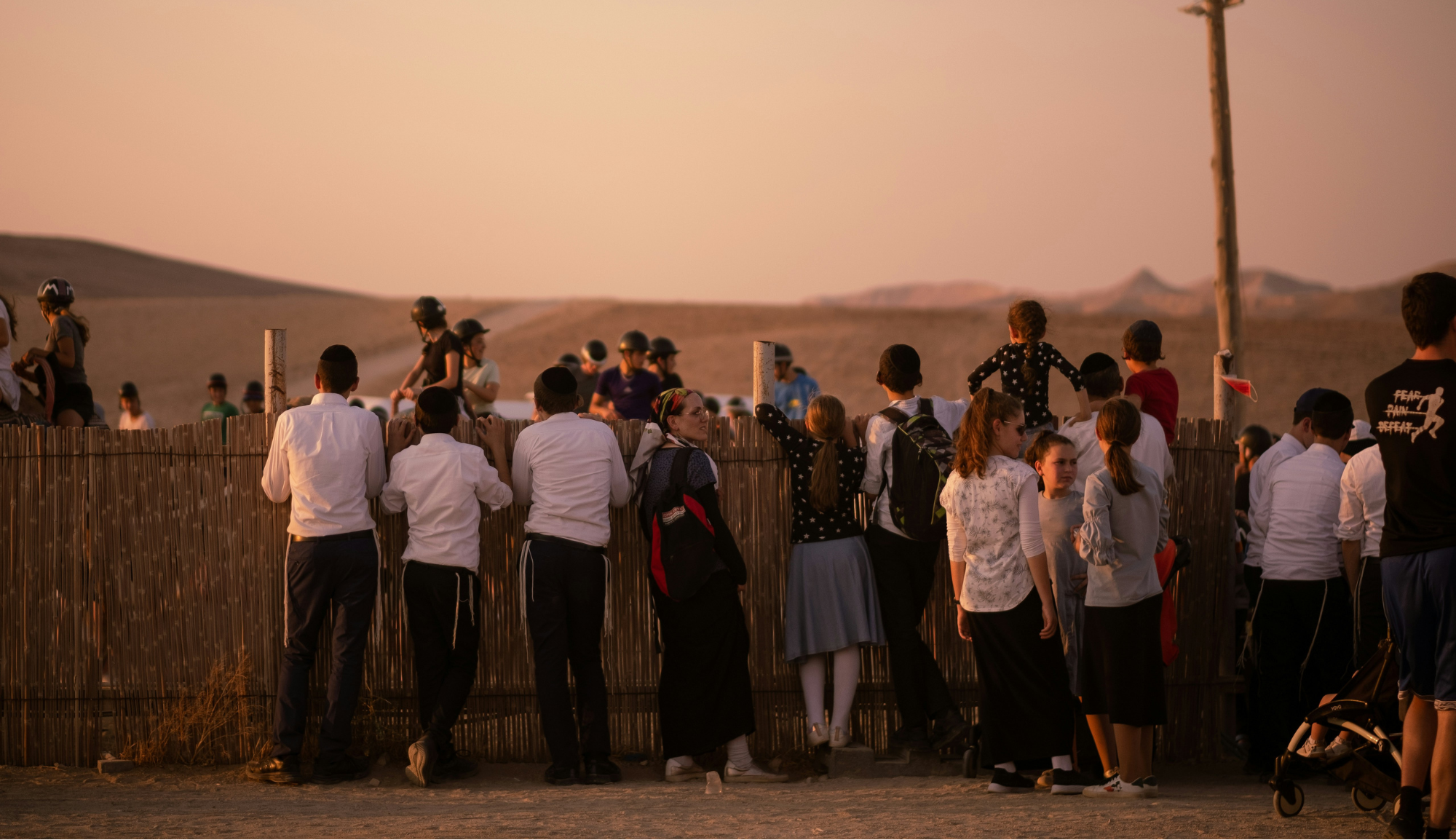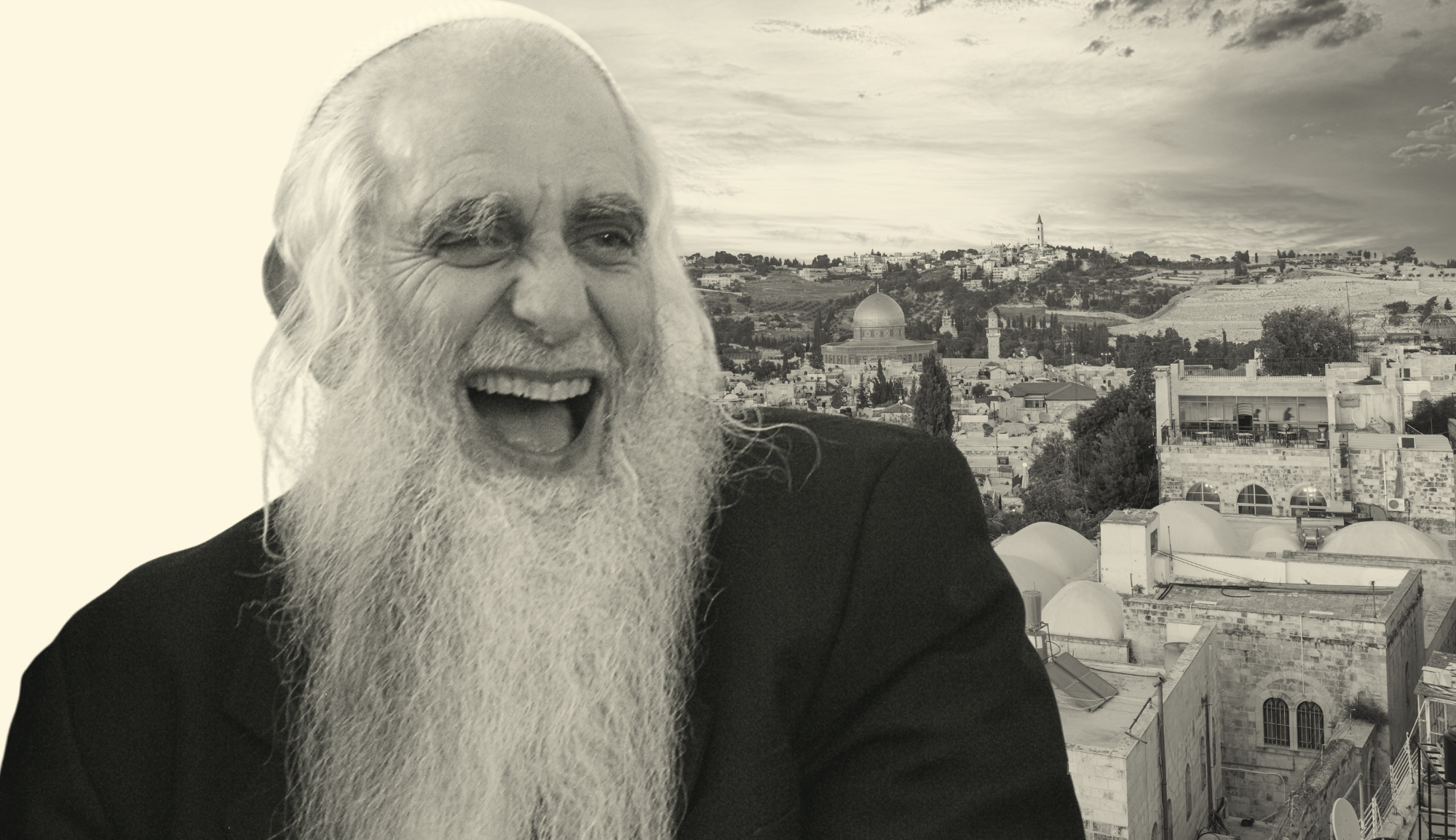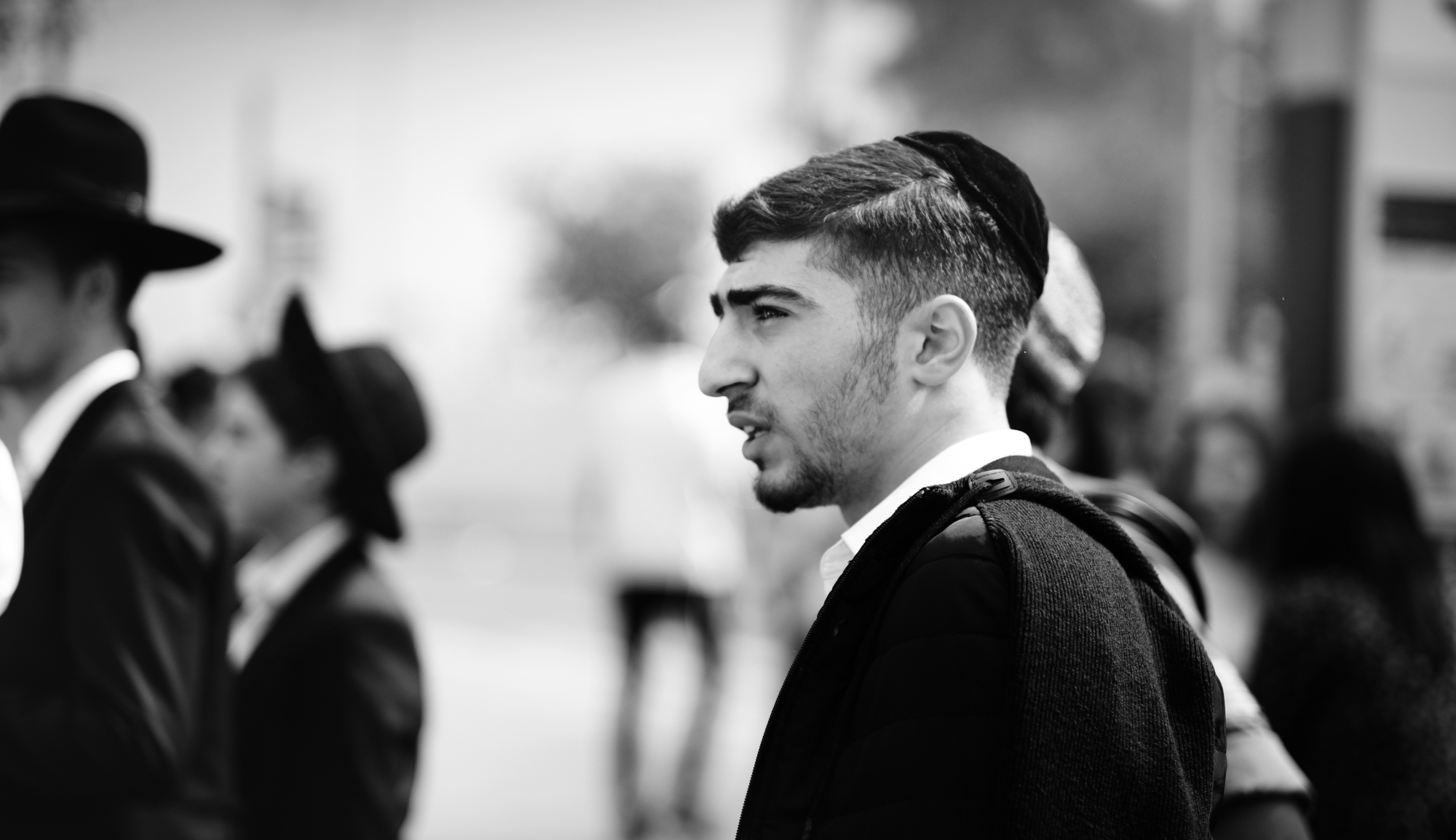I’ve often heard the term “Hardal” used by others to describe my community, but I’ve never heard anyone from my community self-identify as Hardal (perhaps because the term translates to “mustard.”).
Hardal is an acronym for Haredi and Dati Leumi—blending the intensity of religious life of the former with the religiously motivated zionism of the latter. When people use the label “Hardal,” they typically refer to communities rooted in yeshivas like Har Hamor, Mercaz Harav, Ateret Cohanim, and Mitzpeh Yericho. Yes, these yeshivas have significant differences—such as their view on the importance of secular subjects and visiting Har Ha-Bayit (The Temple Mount)—but those differences are less obvious from an outsider’s perspective (especially an American one).
From this point forward I won’t refer to myself as Hardal but as Dati Leumi. Dati Leumi is a spectrum—and I would place my community on the right of that spectrum.
I grew up in a Monsey community that could be described as open-minded, American Yeshivish. I wouldn’t even have known when Yom Ha-Atzmaut was, as my community did not celebrate it. As teenage girls, my friends and I defined ourselves by our way of dress, namely wearing tights and skirts that generously covered the knee. I remember feeling embarrassed when dating my husband because he wore colorful polo shirts instead of the classic “black-and-white” look. In short, I now identify as very frum Dati Leumi; you might call me Hardal. While my halachic standards and the way I dress have not changed, my hashkafah—or outlook—has.
The culture of this community is one of extreme simplicity, paired with a deep idealism for Torah and Eretz Yisrael. Where I once lived as part of the yeshiva community in Mitzpeh Yericho, the families whose fathers learned Torah lived in caravans near the yeshiva. Most of the men were in kollel and their wives were either school teachers or kindergarten teachers (with some exceptions). I knew of a few young men who worked after or before the yeshiva’s hours by cleaning the stairwells of nearby buildings to make ends meet.
Since the war began, most of the young men in Mitzpe Yericho’s kollel have joined the army for reservist duty. They were away for most, if not all, of the Yamim Tovim of the past year; my husband fought in Gaza, Lebanon, and on our border for over 250 days this past year. We don’t see his reserve duty as separate from our Torah life; it is an integral part of it.
When a Jew is in danger, we fight—that too is a mitzvah. Our community actively prepares for the religious difficulties and questions that war introduces. Before entering the army, many yeshivot have shiurim designated for the men to learn the halachos that will prepare them—details of observing Shabbos, carrying outside an eruv, the obligations for Chanukah, and much more.
Beyond the army and simplicity of living, another expression of idealism in this community is the commitment to living in Eretz Yisrael, even in far-flung or less desirable locations, simply to inhabit and populate the land—whether on isolated hilltops or in dangerous areas. The Jews who live there somehow don’t live in fear but live with the pride of knowing they are in their rightful land and are fulfilling the mitzvah of yishuv ha-aretz, settling the land, in a location that would otherwise not be inhabited by Jews.
The Dati Leumi world has an intense love for Israel. Living in Israel is not just another mitzvah but a place where all mitzvot can be properly observed. The Kuzari says that just as grapes grow in the mountains and dates in the valleys, so, too, the Jewish People find their natural habitat in the Land of Israel. The land itself is intertwined with our identity; it is the place where God’s presence is most manifest, where the physical and the spiritual merge. To live in Israel is to engage in the process of redemption, not as passive recipients of divine intervention, but as active participants in bringing about the geulah, or redemption.
The idea of Mashiach also took on new meaning for me. Growing up, I understood Mashiach as an individual figure who would arrive at the end of time to usher in an era of peace and spiritual redemption. I even heard that we could build ourselves big, beautiful houses because when Mashiach comes our homes will be transplanted to Eretz Yisrael. (How this will work, I never really got an answer. Will the massive houses plop next to the tiny apartments of the old city?) As I became more involved in the Religious Zionist community, I began to view Mashiach not as a singular event but as a process—an ongoing era of transformation, beginning with the physical redemption of the land and culminating in the spiritual redemption of the Jewish People.
This process requires us to act. We cannot sit in our mansions and wait for the eagle to arrive. We are tasked with building the Jewish State, cultivating the land, and fulfilling our national responsibilities. Many of the soldiers including my husband wear an army patch on their uniform with a picture of the Beit Ha-Mikdash. This reminds them and everyone who sees them that this is why they are fighting.
I also want to touch on how halacha is viewed within the Dati Leumi world, especially in contrast to the American Yeshivish world in which I grew up. People often point to a perceived laxity in halacha within the Dati Leumi world. However, the Dati Leumi world is vast and encompasses a wide range of observance. Some individuals may “just” keep Shabbos, and some are long-time learners in Dati Leumi yeshivas who keep every stringency (the people often called “Hardal”). This diversity is by design—we are trying to be inclusive, not exclusive.
The Torani community, specifically, is quite stringent in its observance of halacha hand in hand with their stringency in their service to the country and its army. I sent my husband who was entering Lebanon with a suitcase full of protein bars probably donated by Teaneck moms. When I asked him if they enjoyed it, he said they were great, but he felt bad that a few of the soldiers wouldn’t eat it because it was Chalav Stam. This is the perfect example that shows our stringent regard for halacha while stringently serving the nation as well.
A recurring motif in the speeches and sermons of rabbis within our community is the concept of prat vs. klal. This idea revolves around understanding how a mitzvah or action affects me as an individual (prat) versus how it affects the larger nation (klal). Take army service as an example. On a personal level, it’s not good for an individual to fight in a war—his family misses him, the work is physically demanding, and there’s of course the risk of death. But, when you look at it through the lens of klal, the needs of the nation take precedence. This is the kind of perspective a person with this mindset will constantly weigh in their life choices.
Judaism is not only about personal observance and connection to God. It’s about understanding our place as a nation with a unique mission in the world. As the Pasuk says, the Jewish people are meant to be a “mamlechet kohanim v’goy kadosh”—a kingdom of priests and a holy nation. The kohanim (priests) represent the spiritual leadership, but the nation as a whole—through its laws, governance, economy, and military—is also meant to reflect holiness.
While in Galus (exile), our focus was on survival, on preserving Jewish life and continuity, and living in Israel calls us to something higher. The Jewish State is not just about maintaining tradition; it’s about flourishing and fulfilling our collective purpose as a people. We cannot remain stuck in a survival mindset; we are meant to build something better—physically and spiritually.
Amit Segal, an Israeli political commentator, estimated that 60% of all fallen soldiers are Dati Leumi. My husband has four close friends from his unit who were killed during battle in Lebanon. All of them learned in yeshiva and are deeply committed to Halachah, Torah, and serving their nation. They saw their army service as their part in actively bringing the Geula. May this article shed light on the motivation behind their sacrifice.





































